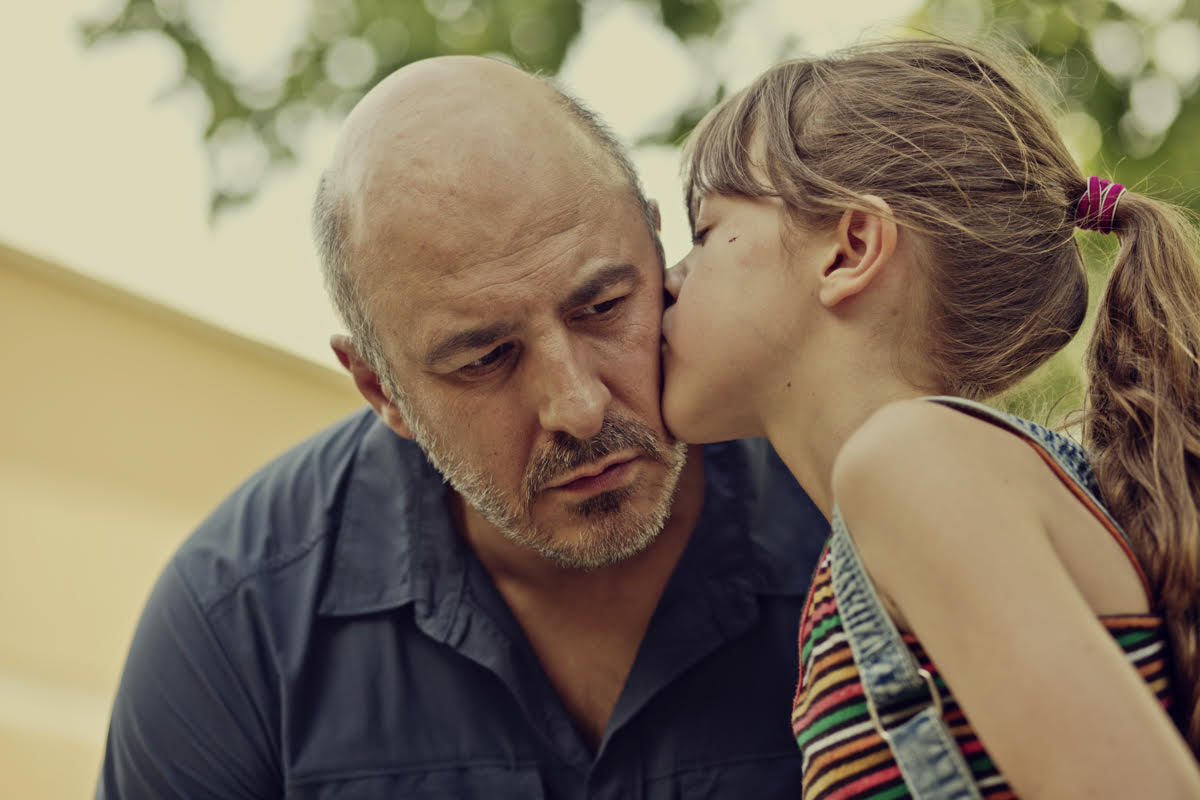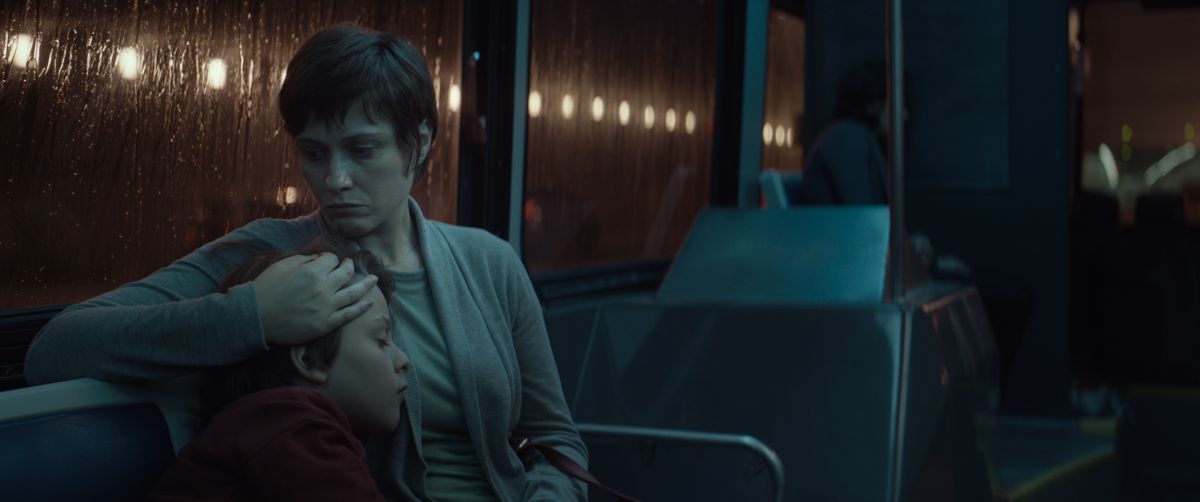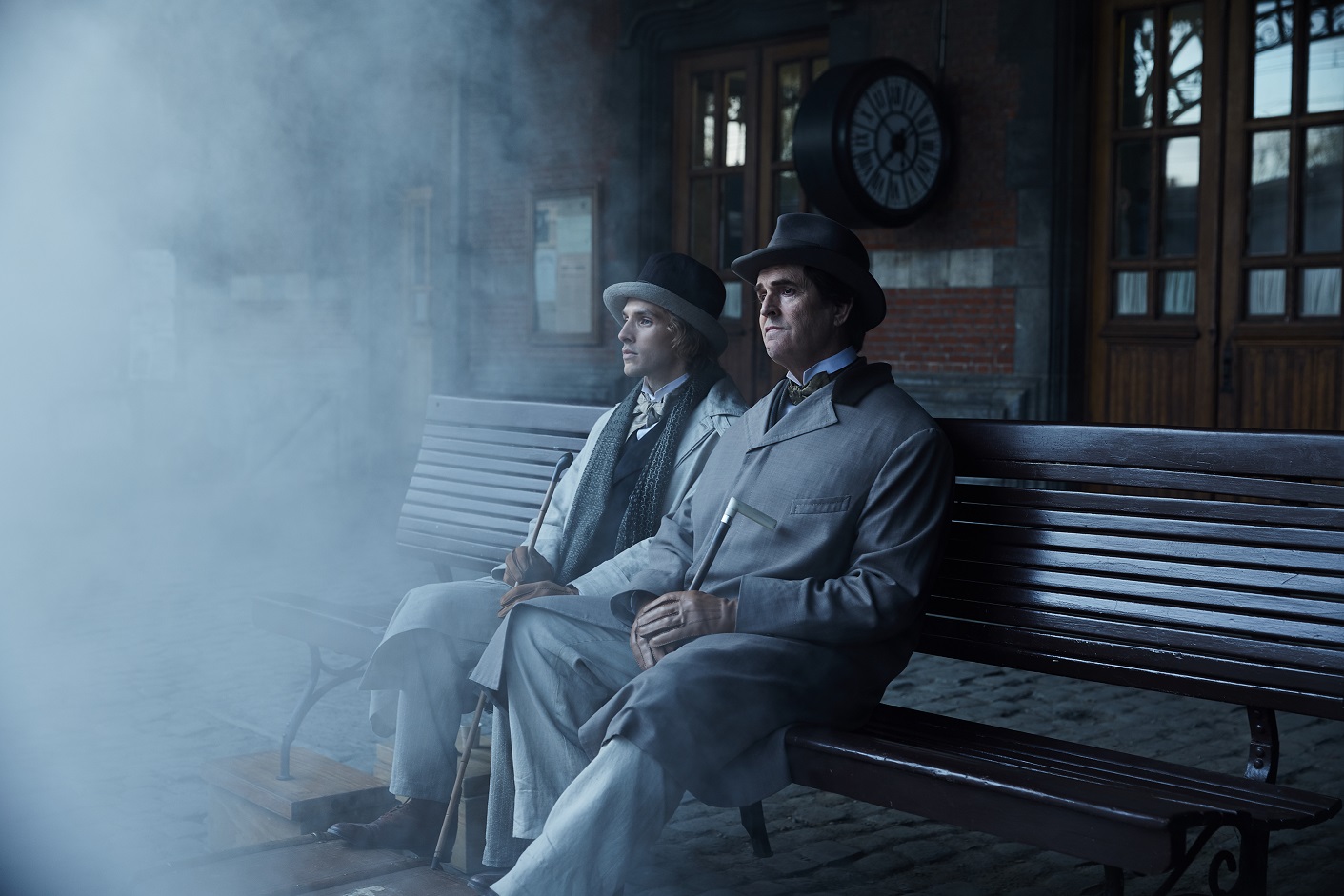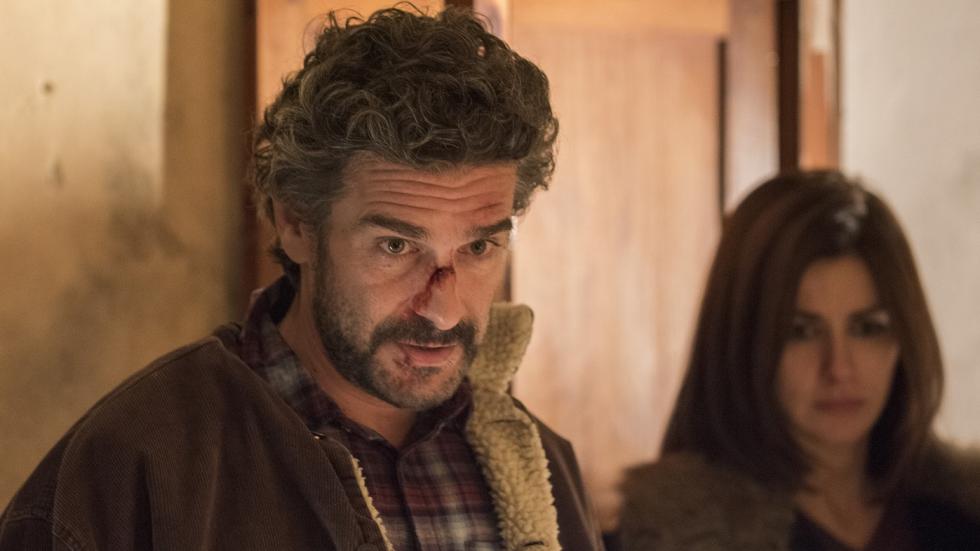Arising from the wish to hold special screenings of films with impact aimed at the general public, the Special Screening section includes a handful of striking Spanish productions. One of the most attractive proposals comes from Jonás Trueba and his project 'Quién lo impide': during the shooting of his latest film, 'La reconquista', the youngest of the Trueba saga had a connection with two of his young protagonists, Candela Recio and Pablo Hoyos. That, and the kids’ concerns, led to this project (whose title, by the way, comes from the song by Rafa Berrio which closed the film), intended as a look at adolescence, a call to modify the perception we have of that stage in life. At the same time, the project seeks to delve into and play with the concept of current cinematic creation: starting from conversations and mises-en-scène, without predefined plans, the director and several groups of secondary school students constructed as they went along.
As a result of this unusual testing laboratory, Trueba will present two films at the Festival: 'Sólo somos' and 'Si vamos 28, volvemos 28'. The first, the original of the project and the one that best shows its characteristics, follows a group of adolescents who consider their own representation as possible fictional characters, while others offer new reflections, constructing a possible future film together. The second follows the adventures of a group of ‘A” level students on their end of year trip.

Ibon Cormenzana, Nacho Ruipérez, Isaki Lacuesta, Elías León Siminiani, Samuel Alarcón and José Luis Cuerda are other filmmakers who present their latest works in Special Screening. Cormenzana has directed 'Alegría, tristeza', with Roberto Álamo as a fireman who suffers from alexithymia, a strange disorder that prevents him from having any kind of emotion, and which he will face with the help of his daughter. The cast includes Manuela Vellés, Pedro Casablanc and Maggie Civantos. From sentimental drama to atmospheric thriller: in 'El destierro', the director Nacho Ruipérez ('Blue Lips') constructs the sordid investigation, with a thousand and one twists, undertaken by two cousins when they start tracing their genealogical tree. Leonardo Sbaraglia is the protagonist of the film, set in the rice fields of Valenica.
Winner of the Golden Shell at the last San Sebastian Festival, 'Entre dos aguas' tells the story of Isra and Cheíto, twelve years after 'La leyenda del tiempo' (2006). As then, Isaki Lacuesta explores the barriers between fiction and reality, in a beautiful look at the very hard life on the Isla de San Fernando, where unemployment and despair mark some characters who try to sort out their lives and get ahead. Following the recent release of his docuseries 'El caso Asunta', Elías León Siminiani will come to Seville with his second feature, 'Apuntes para una película de atracos': as in his first film,’Mapa’ (winner of the Gold Giraldillo for Best Non Fiction film at Seville 2012) the director also puts himself in front of the camera for a cinematic game in which his passion for films about robberies grows into an unexpected friendship with Flako, the Robin Hood of Vallecas, leader of a gang of thieves, of whom he ends making a fascinating portrait. Another exercise that breaks generic borders is 'Oscuro y lucientes', with Samuel Alarcón offering a curious reflection on the decline of painting with the appearance of photography, from the death of Francisco de Goya and the disappearance of his skull.

Finally, the veteran José Luis Cuerda resumes the spirit of his legendary 'Amanece que no es poco' and 'Así en el Cielo como en la Tierra' in 'Tiempo después': free, erudite, transgressive cinema, in which Cuerda lashes out against the de facto powers. The surreal premise of the film offers an insane dystopia in which there are civil guards, murderous barbers, farmer who read Marx, and a lot of irony. A first rate cast is led by Blanca Suárez, Miguel Rellán, Antonio de la Torre, Berto Romero, Arturo Valls and Roberto Álamo.
Spanish cinema will also be present in three documentaries which deal with very important matters: 'El silencio de otros', by Almudena Carracedo and Robert Bahar, navigates in terms of historical memory, giving voice to some victims of Francoist crimes who are still calling for justice. 'Todos los caminos', by Paola García Costas, has Dani Rovira as the main figure: the protagonist of 'Ocho apellidos vascos' gets on his bicycle to pedal from Barcelona to the Vatican on a supportive journey to gather funds for research into the unknown Rett Syndropme. And 'Morir para contar', by Hernán Zin, reflects on the dangers faced, on a daily basis, by reporters covering the wars around the world.

Beyond our borders
Special Screenings will also show titles from other parts of Europe, aimed at spectators with all kinds of tastes. Films like 'En liberté!' (a hilarious comedy with touches of an action movie, directed by Pierre Salvadori and with Adèle Haenel and Audrey Tautou), 'The Happy Prince', (by and with Rupert Everett, in a look at the final years of Oscar Wilde, in disgrace after his homosexuality became public), 'Lemonade' (in which Ioana Uricaru mingles the constants of the New Wave of Romanian cinema with those of American indie cinema), 'Old Boys' (where Jamie Jones films an ironic rereading of 'Cyrano de Bergerac' set in a boarding school in the English countryside in the 80s), 'Fauves' (by a Robin Erard who plays with the constants of the giallo), 'Float Like a Butterfly' (which, set in the Ireland of the 60s, follows a young girl determined to follow in the footsteps of her idolised Muhammad Ali and triumph in the ring), 'La fête est finie' (about the friendship between two drug addicts in a detox centre, directed by Marie Garel-Weiss) or 'Funan' (animation film that won at the Annecy Festival and looks at the dramatic hell of the Cambodians in the days of the Khmers Rouges).
The section also includes three examples of British social cinema: 'Jellyfish', by James Gardner; 'Two for Joy', by Tom Beard, and 'Obey', by Jamie Jones. A deserved special mention for 'Il diario di Angela. Noi due cineasti', a love song by Yervant Gianikian, after the loss of Angela Ricci Lucchi, his sentimental partner, and professional partner in practically his whole career as a filmmaker. Quality European cinema, intended for the general public, but without losing an indispensable auteurist stamp or a bombproof personality.







